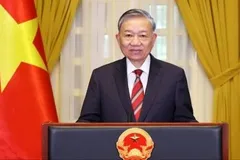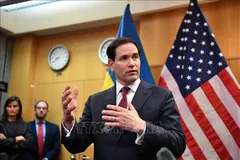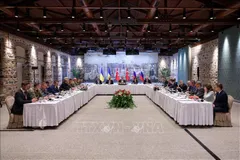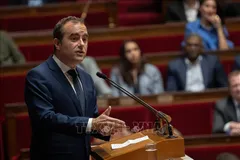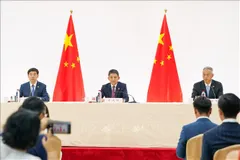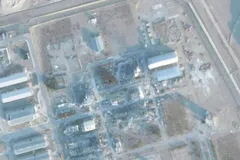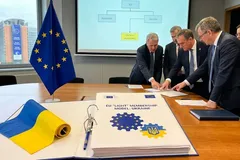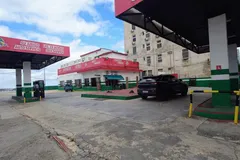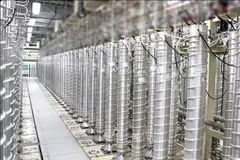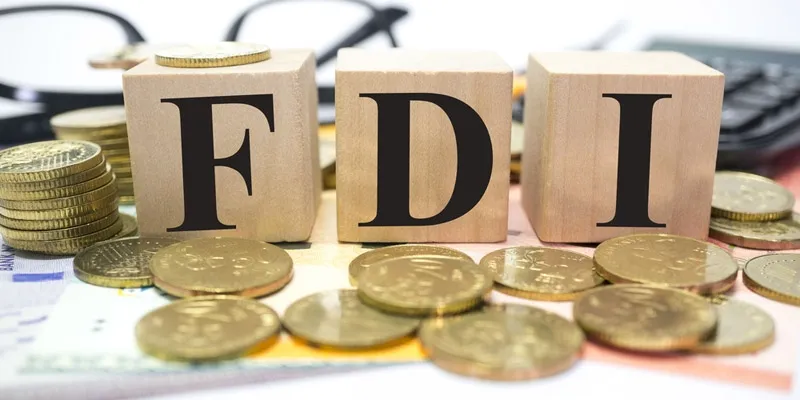
This is causing much concern as the target is to attract foreign investments of up to USD 36 bln to around USD 38 bln this year. Despite this decline, it is still necessary to remain selective to the kinds of projects that are invested in Vietnam in coming years.
Signs of slow down
According to a report of the Foreign Investment Agency under the Ministry of Planning and Investment, Vietnam wants to attract USD 36 bln to around USD 38 bln in FDI projects this year, which is an increase of 30 percent to about 37 percent compared to 2022. Currently, there are three important factors for attracting FDI in 2023, namely, the economic growth results in 2022; efforts to improve the business investment environment to create confidence in investors; and effective exploiting of advantages of the Free Trade Agreements (FTAs).
Even so, FDI inflow into Vietnam seems to be slowing down a lot this year. If in 2022 FDI capital remained stable and reached the highest record of USD 28 bln in the last ten years, this year FDI is showing signs of decline. Starting in January, the FDI figures showed a sharp decline, and the situation became more obvious in the following month.
According to the Ministry of Planning and Investment, by mid-February the total amount of newly registered capital, contributed capital to buy shares, and capital contribution of foreign investors only reached around USD 3.1 bln, down by 38 percent over the same period in 2022. At the same time, it is estimated that FDI projects have disbursed about USD 2.55 bln, down 4.9 per cent compared to the same period in 2022.
In the first two months of the year, the whole country only saw 261 new projects granted investment registration certificates, worth a total registered capital of around USD 1.76 bln and 133 projects registered to adjust investment capital, down by 6.3 per cent over the same period. The total additional registered capital also reached nearly USD 535.4 mln, down by 85.1 per cent over the same period.
FDI capital was focused mainly on Industrial Park (IZ) projects which is now slowing down. In the first months of the year, besides Bac Giang with USD 824.3 mln in newly registered FDI capital, a number of other localities still did not manage to attract FDI such as Ho Chi Minh City, Binh Duong, Quang Ninh, and Dong Nai provinces. Recently, Ba Ria-Vung Tau Industrial Park Management Board, said that in the first quarter the industrial zones only attracted three FDI projects out of a total of four new investment projects, with total investment capital of around USD 35.44 mln over a land area of nearly 11 hectares. This amount was much lower than in previous years.
The reason behind this present situation of slowdown in foreign investments is the rising global inflation, which has greatly affected the world economy as well as the domestic economy across most countries. Investors continue to face many difficulties in production and business activities, the supply chains are broken, revenue is declining, and investment capital is limited. This situation is recurring across many localities.
Effective solutions needed
In the context of global FDI inflow slowing down, Vietnam needs to implement many effective solutions to attract quality FDI inflow in the coming time. Accordingly, in addition to continuing to promote reform of administrative procedures and improving the investment environment, Vietnam needs to pay attention to meeting the requirements of trans-national corporations about the time to negotiate and sign agreements. Unifying and deploying, prioritizing strategic industrial zones, creating a global production chain, building a mechanism for prioritizing high tech enterprises, and transferring technology to domestic enterprises must now be given focused attention.
According to the UNCTAD report, global FDI continues to decline as many countries continue to screen all FDI capital flow. However, Vietnam's ability to attract FDI has many positive signs, although there are still many challenges. In order to effectively attract FDI, the UNCTAD report said that Vietnam needs to upgrade its policies on attracting and using FDI with a strong focus on green growth, digital transformation and connecting the supply chains of Vietnamese enterprises with FDI enterprises, especially trans-national corporations. Along with this there is a need for perfecting institutions, laws, the global minimum tax, handling relationship between internal and external parties, modernizing infrastructure, and speeding up national administrative reforms.
Dr. Nguyễn Minh Thảo, head of the Business Environment and Competitiveness Department at the Central Institute for Economic Management (CIEM), spoke with Saigon Investment on the goal of attracting USD 36 bln to about USD 38 bln in FDI in 2023. Since this will prove to be a challenge, to improve the quality of FDI it is necessary to target strategic and high-tech investors capable of creating production chains for domestic enterprises. Ms. Thảo believes that we must not try to attract FDI at all costs and be selective of investment projects that bring efficiency to the economy and added value.
According to Ms. Thảo, the State should focus on perfecting the investment institutions in creating favorable conditions for foreign investors and research and issue policies suitable to each industry and attract quality FDI inflow. It is necessary to completely eliminate hidden and unnecessary costs because these are bottlenecks that hinder capital flow of not only FDI enterprises but also domestic private enterprises. We need to deploy investment promotion campaigns, affirming that Vietnam is a safe and reliable investment destination that connects and works with major corporations in the world to exchange and share investment opportunities in Vietnam.
For the Government in Vietnam, it is necessary to improve regulations and standards so as to be able to select viable foreign investors with advanced technology, who follow environmentally friendly practices and are capable of withstanding pressures from global occurrences besides ensuring the national security of the country.

